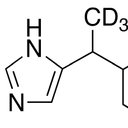The natural compound, formononetin, extracted from Astragalus membranaceus increases adipocyte thermogenesis by modulating PPARγ activity.
Mots clés
Abstrait
OBJECTIVE
Increasing energy expenditure through adipocyte thermogenesis is generally accepted as a promising strategy to mitigate obesity and its related diseases. However, few clinically effective and safe agents are known to promote adipocyte thermogenesis. In this study, 20 traditional Chinese herbal medicines were screened to examine whether they induced adipocyte thermogenesis.
METHODS
The effects of Chinese herbal medicines or components isolated from extracts of A. membranaceus, on adipocyte thermogenesis were analysed by assessing expression of uncoupling protein 1 (UCP1) by qPCR. Eight-week-old C57BL6/J male mice were fed a high-fat diet for 8 weeks and then randomized to two groups treated with vehicle or formononetin for another 8 weeks. Glucose tolerance tests and staining of adipose tissue with haematoxylin and eosin were carried out. Whole-body oxygen consumption was measured with an open-circuit indirect calorimetry system.
RESULTS
Extracts of A. membranaceus increased expression of Ucp1 in primary cultures of mouse adipocytes. Formononetin was the only known component of A. membranaceus extracts to increase adipocyte Ucp1 expression. Diet-induced obese mice treated with formononetin gained less weight and showed higher energy expenditure than untreated mice. In addition, formononetin binds directly with PPARγ.
CONCLUSIONS
Taken together, our study demonstrates that the Chinese herbal medicine from A. membranaceus and its constituent formononetin have the potential to reduce obesity and associated metabolic disorders. Our results suggest that formononetin regulates adipocyte thermogenesis as a non-classical PPARγ agonist.



